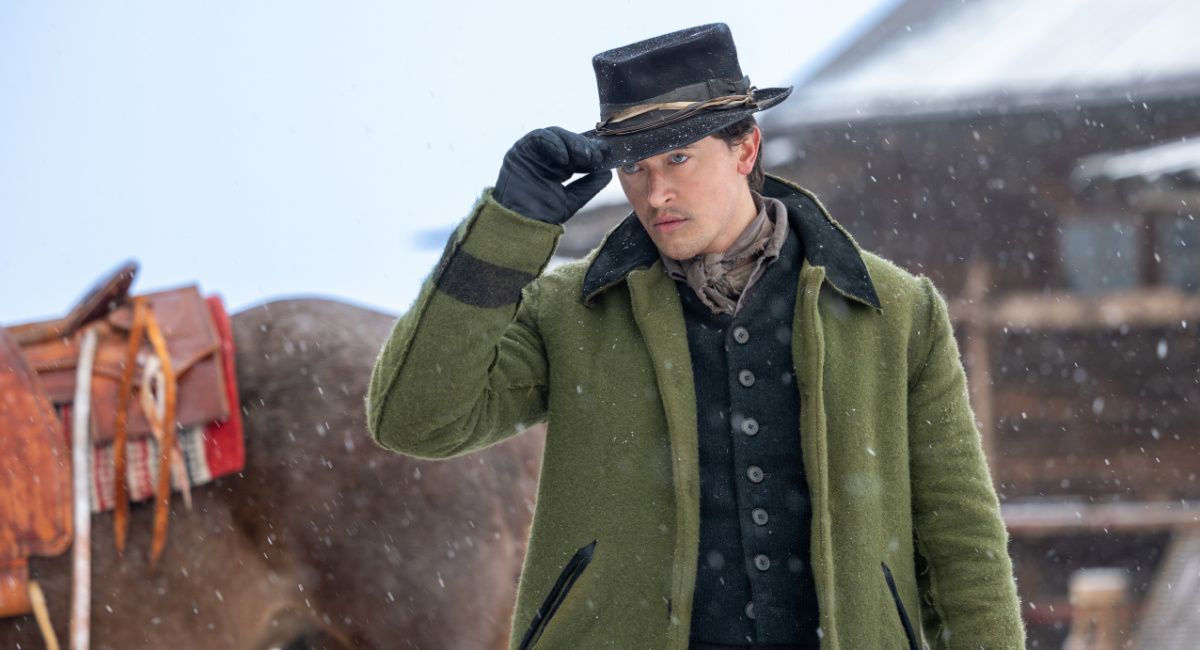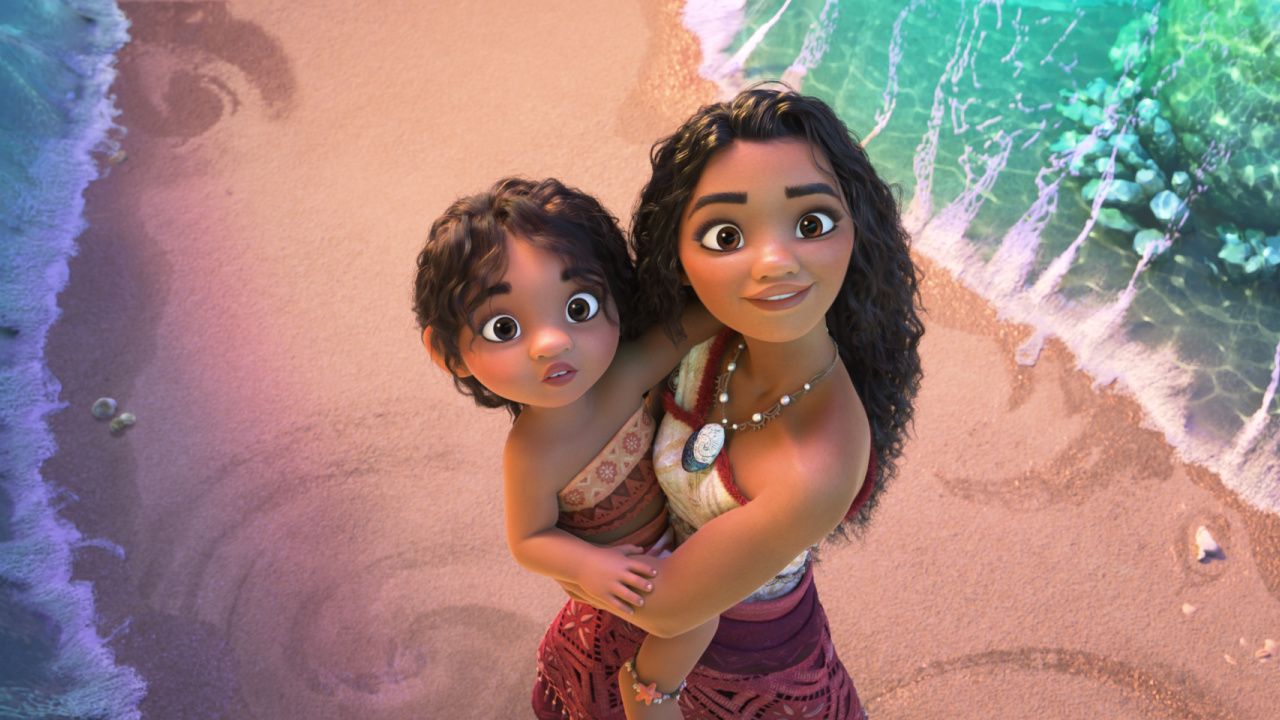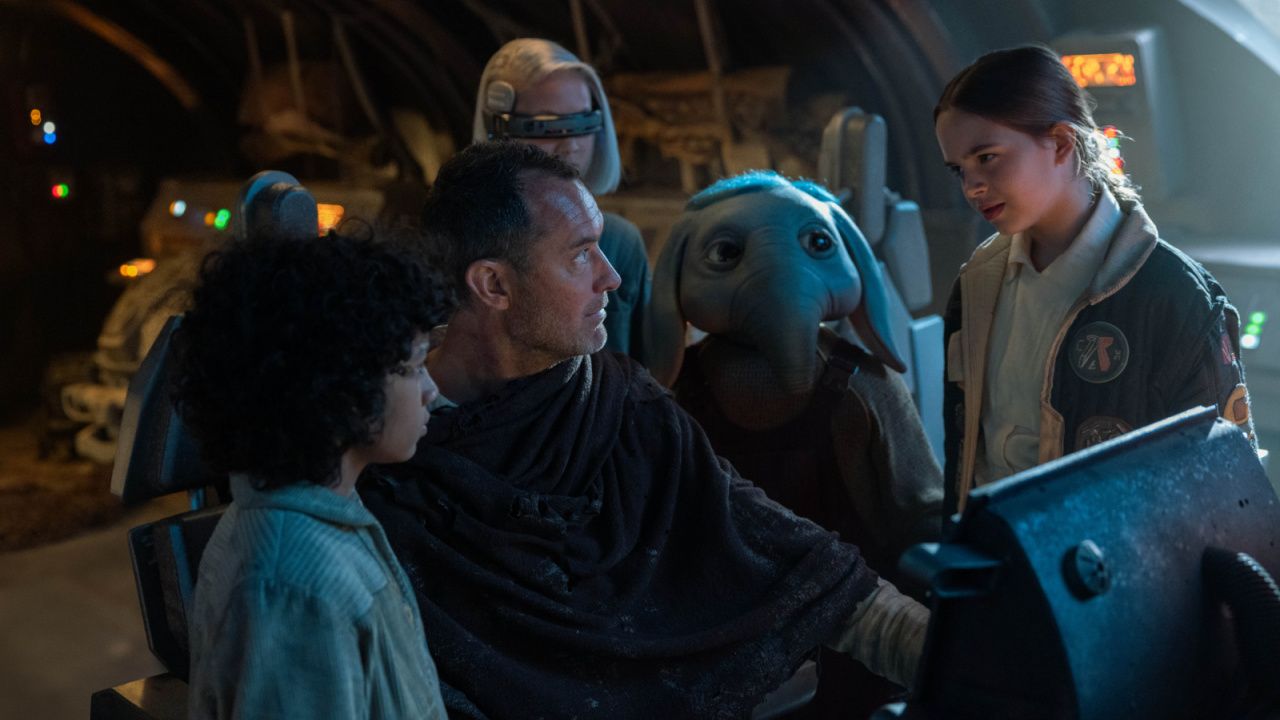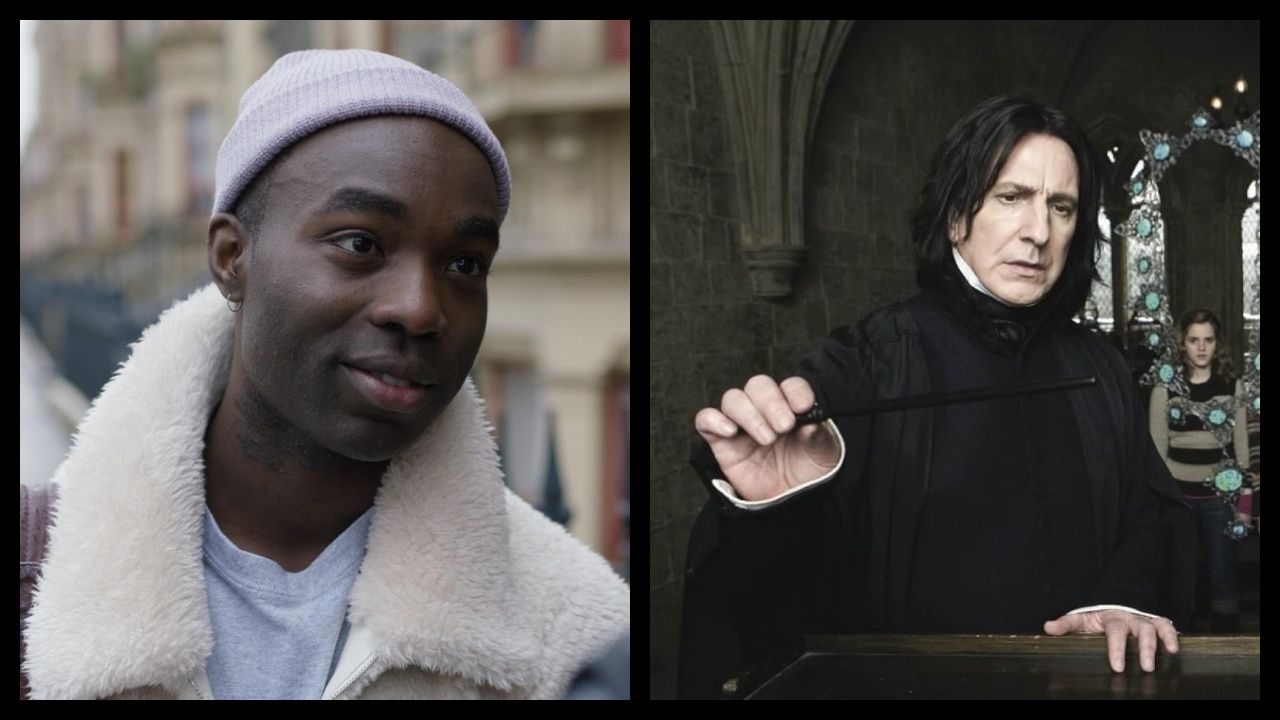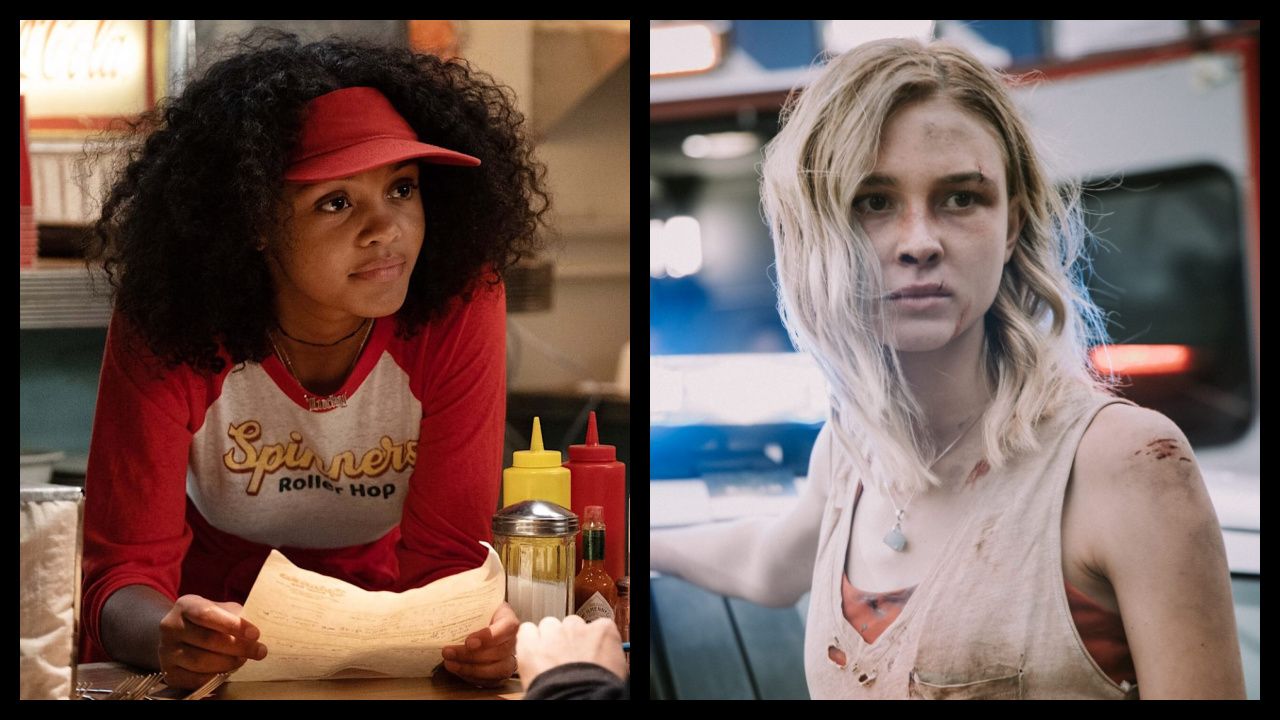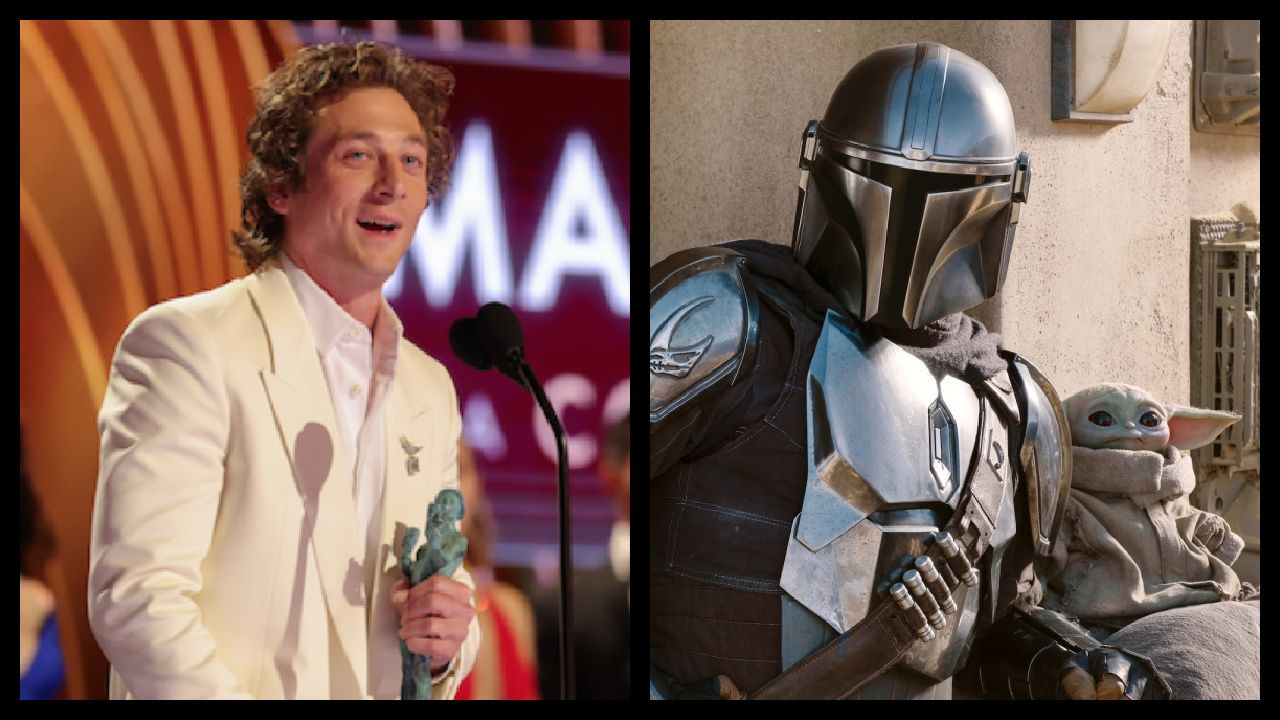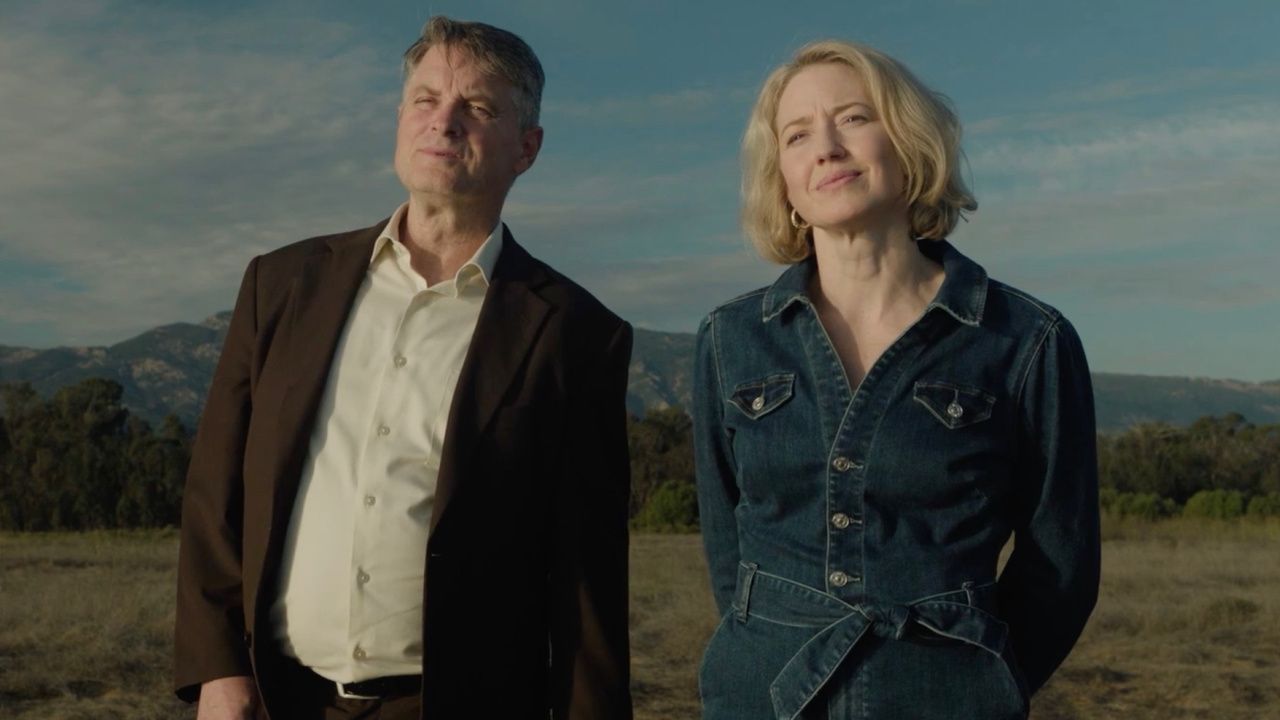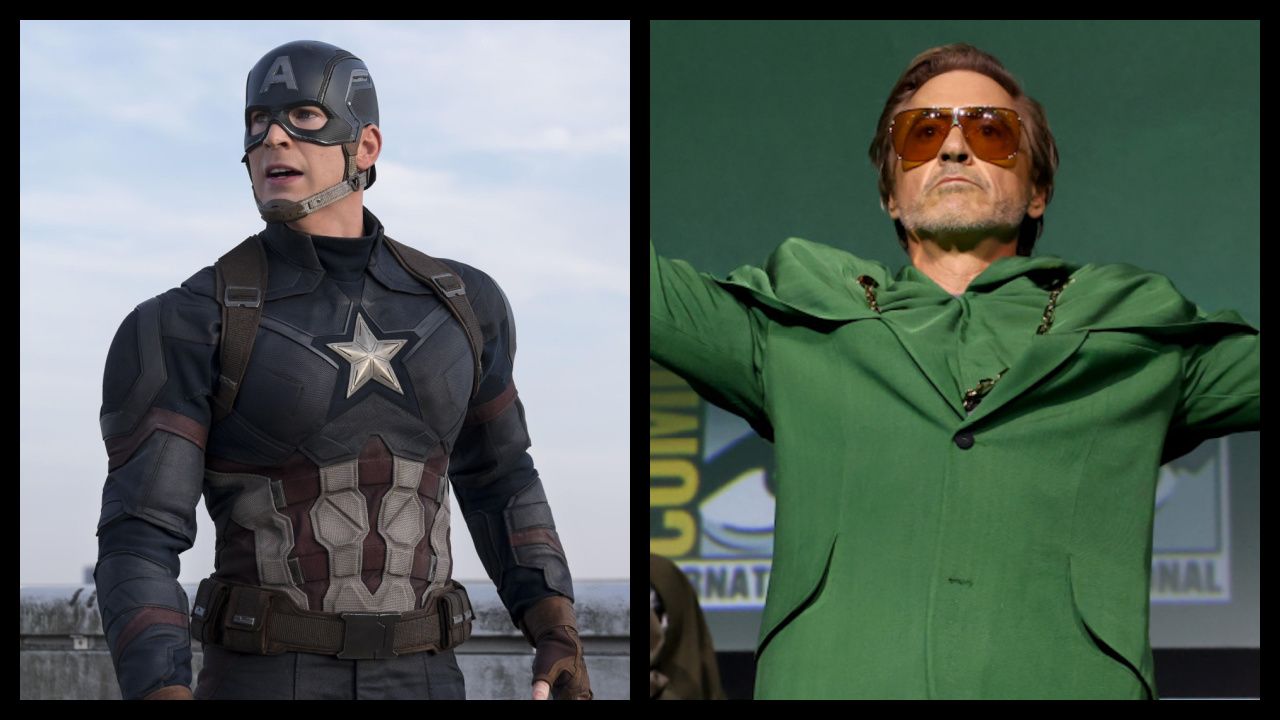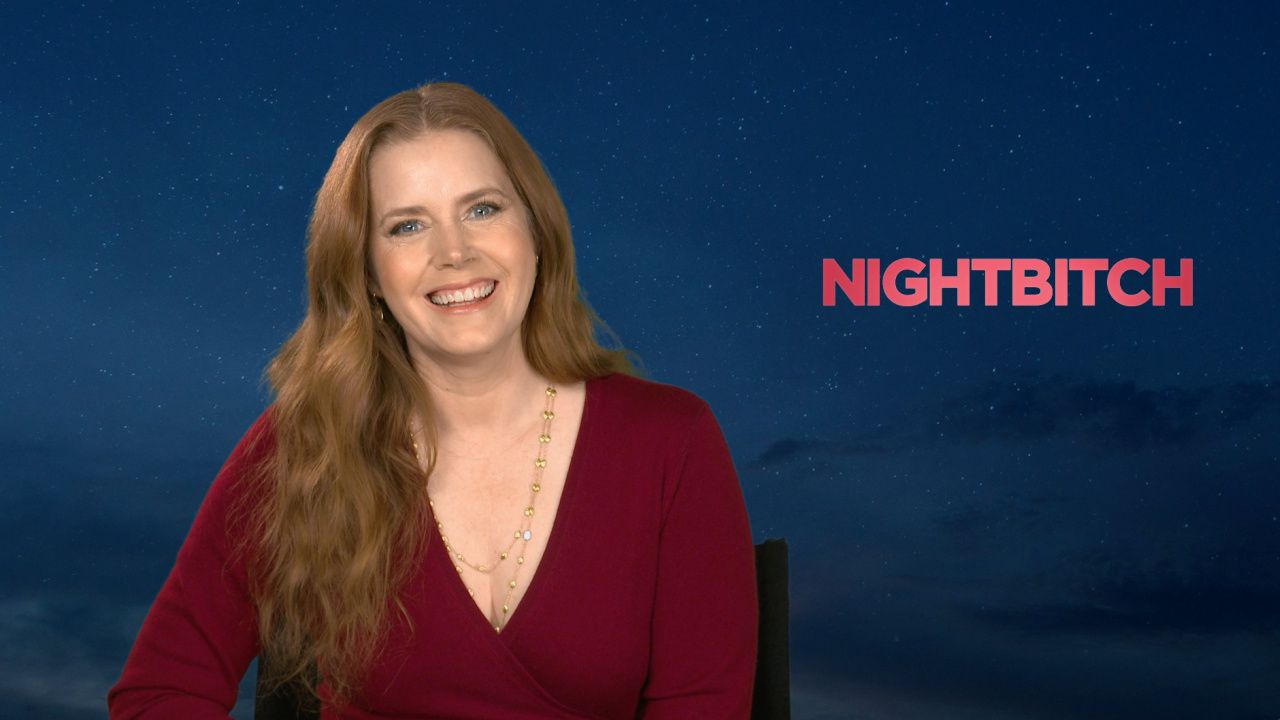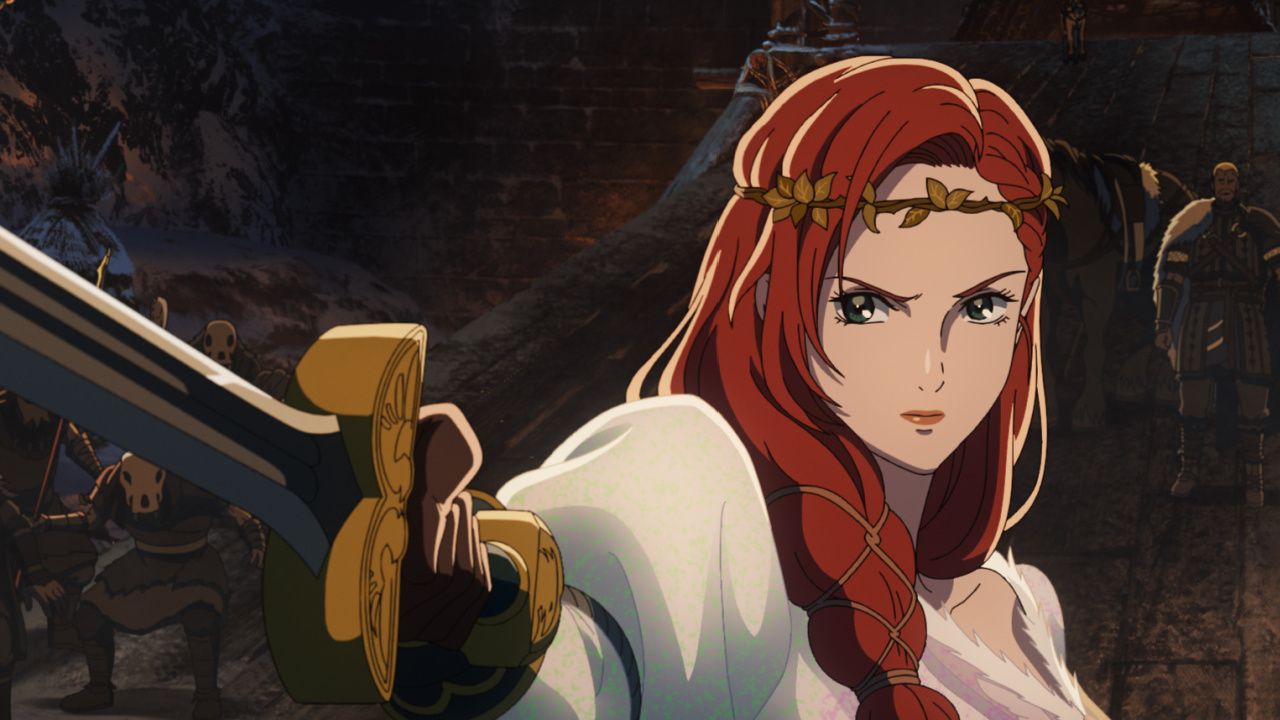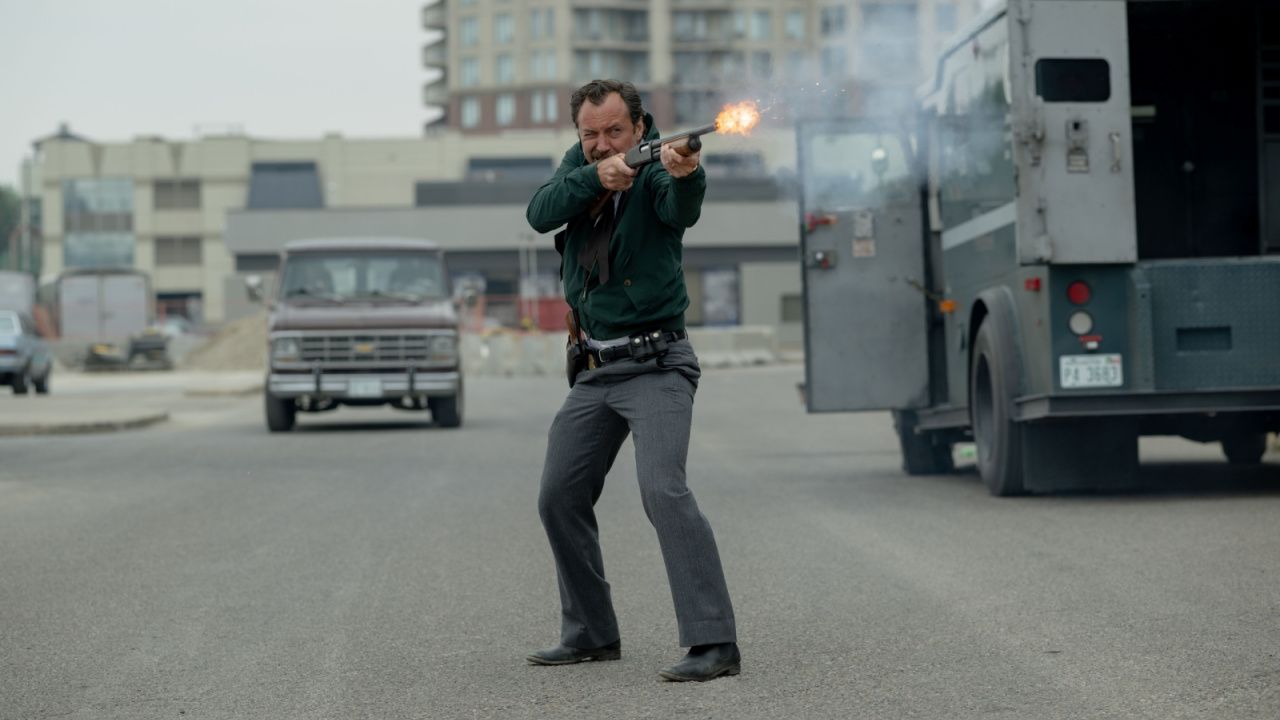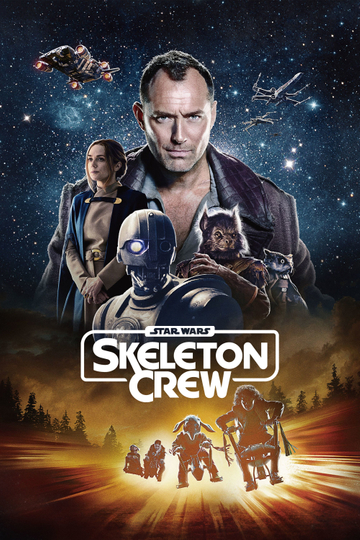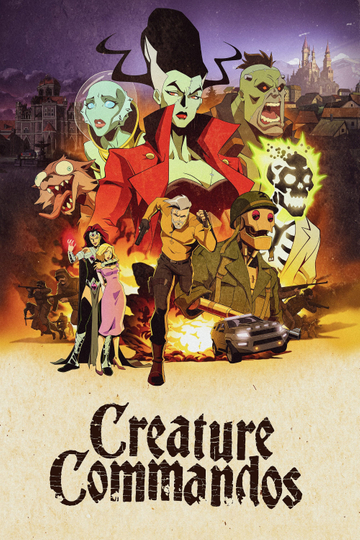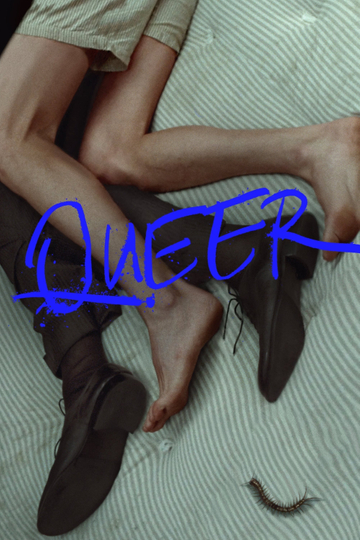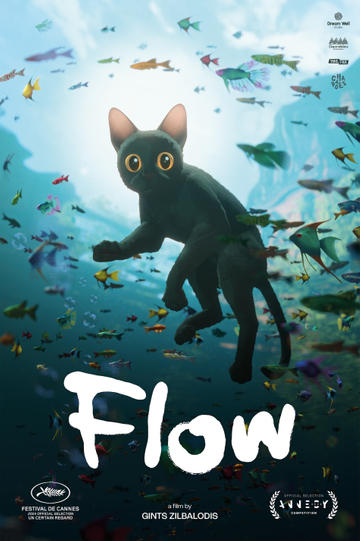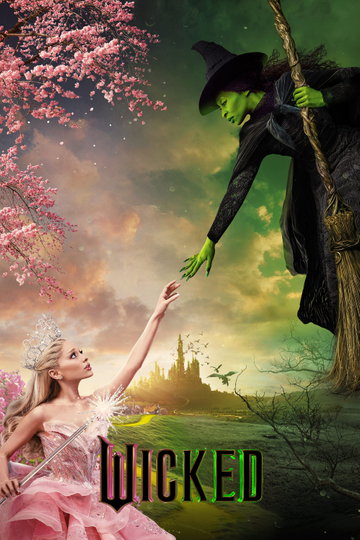Executive Producer Michael Hirst Talks MGM+'s 'Billy the Kid' Season 2
Moviefone speaks with executive producer Michael Hirst about 'Billy the Kid' Season 2. "It is fun making a Western, partly because of your sense of tradition."
Premiering on MGM+ beginning October 15th is season 2 of the popular series ‘Billy the Kid,’ which was created by Michael Hirst (‘Elizabeth’).
What is the plot of ‘Billy the Kid’ Season 2?
Based on the real life of legendary American outlaw Billy the Kid, and following the events of the first season, season two sees Billy (Tom Blyth) and his allies squaring off against his oldest friend Jesse Evans (Daniel Webber) and the corrupt powers of the Santa Fe Ring. When shots are fired, the conflict erupts into the bloody Lincoln County War. Amidst the fighting, Billy will struggle to hang onto his soul—and to the love of his life.
Who is in the cast of ‘Billy the Kid’ Season 2?
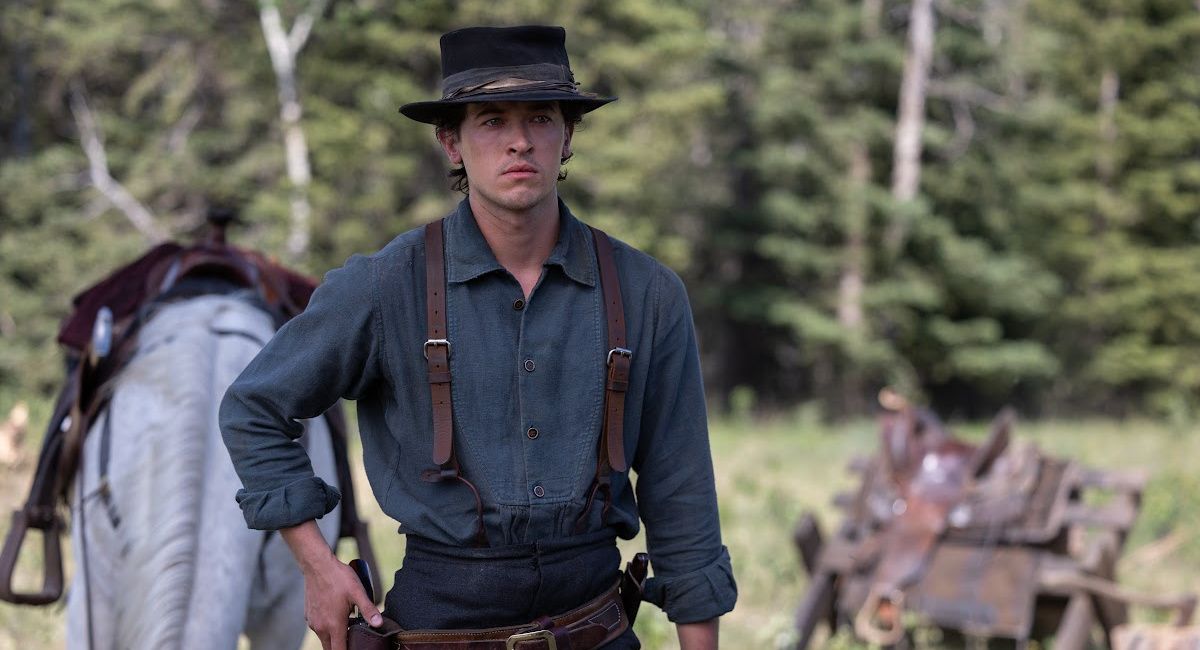
Tom Blyth in 'Billy the Kid' season 2. Photo: Metro-Goldwyn-Mayer Studios Inc.
- Tom Blyth ('The Hunger Games: The Ballad of Songbirds & Snakes') as William H. Bonney
- Daniel Webber ('The Dirt') as Jesse Evans
- Linus Roache ('Batman Begins') as Tunstall
Moviefone recently had the pleasure of speaking with show creator and executive producer Michael Hirst about season 2 of ‘Billy the Kid,’ what fans can expect from the new season, why making Westerns are so much fun, working with actor Tom Blyth, casting Linus Roache, Billy and Tunstall’s relationship, and why we as a public are still fascinated by the legend of Billy the Kid.
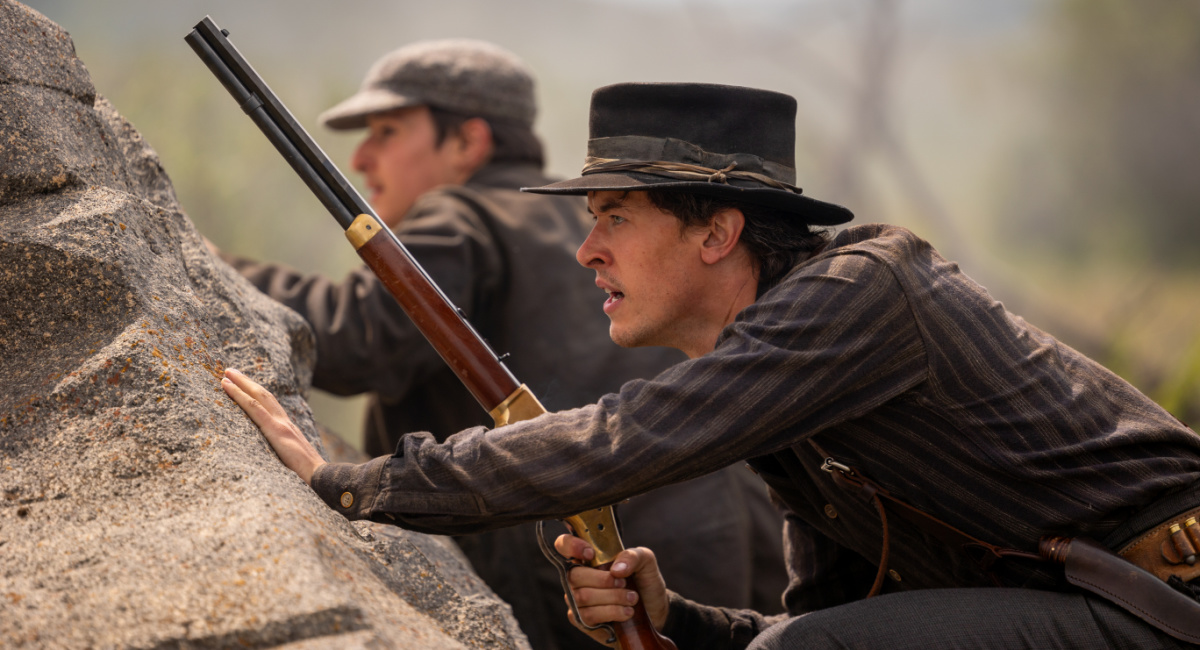
(Right) Tom Blyth in 'Billy the Kid' season 2. Photo: Metro-Goldwyn-Mayer Studios Inc.
You can read the full interview below or click on the video player above to watch the interview.
Moviefone: To begin with, war is coming to Lincoln County in season 2 of ‘Billy the Kid.’ Can you talk about that and where we will find the characters when the new season starts?
Michael Hirst: So in a way, the first season of ‘Billy’ is a preparation for the Lincoln County War, because in Billy's life that was pivotal. It was where he became famous around America and ultimately famous around the world. Strangely enough, I loved Billy when I was a kid of eight years old growing up in the north of England. He was a hero, but I didn't just want to write about a cliche. I didn't want to write about an outlaw, someone who just comes in the room shooting everyone, and who many people would regard as probably a pathological killer or there's something wrong. The more research I did about him, I just discovered this really sensitive, young boy brought up by a mother who told him great stories, but was a very profound Catholic, and gave him a moral compass. That his father kind of stepped out of the family and couldn't cope with America. The family, they were immigrants, and they were sent by the American government to one of the wildest, most dangerous parts of the country at the time. So, I wanted people to know that story. I wanted to dramatize that story. I wanted people to empathize with him. I was also, of course, introducing along the way other characters like Jesse Evans and the sheriff, who we're going to crop up later. So we get to the Lincoln County Wars, and this is obviously where the stuff hits the fan. I mean, this is what you might call a real Western because there's a shooting of a sheriff. There's a lot of violence and brutality, and all centered around this commercial rivalry between two outfits, one of whom is Murphy's Store, which has always had a monopoly of trading in that area of New Mexico because they were attached to this thing called the Santa Fe Ring, this group of very rich American businessmen who ran everything in New Mexico. They're being challenged by an Englishman called Tunstall. Tunstall has problems with his father too, but then he comes to prove himself, but he doesn't realize what he's getting into. But he's happy to hire Billy to be on his team because Billy already has a certain reputation. There are wanted posters for him, and everyone who works for Tunstall really says, "Look, who's joining us now." His ex-friend Jesse Evans, is with the House. So we are in a different world now, and it's darker. It's edgier. It's still about the things that Billy cared about when he was growing up, that is to say immigrant issues. He sees what's happening to the Mexicans. He always identifies with the underdogs. He has a profound sense of the injustices of the world and America at the time, as he was 19, which a lot of young people do. I hadn't thought about that when I started, I was just concentrating on Billy. But these issues are contemporary. They resonate. They're real issues now. The Lincoln County Wars, which killed about over 20 people in this nowhere town in New Mexico, became the scene of these horrific and insane murderous acts by people. I mean, the value of life was so low at that point. Billy takes a leadership role in these events, even though he's 19, and goes through a terrible experience basically. So second season, we've upgraded in many ways. It's a great production, great cast who love the show. It's a very friendly company of people. But we don't work at a studio. It's all on location, and it's all with real cowboys because Calgary, where it's shot, is a center for cowboys. They have rodeos there. So our young cast has been riding with real cowboys. It's just been a blast for them.
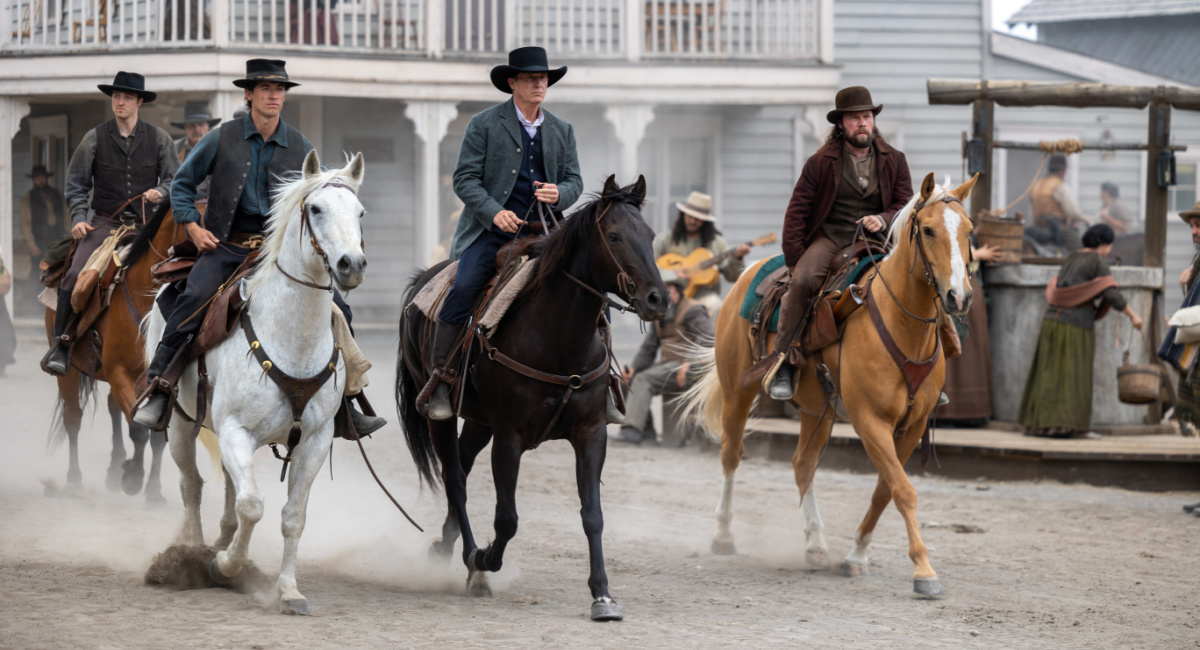
(L to R) Tom Blyth and Linus Roache in 'Billy the Kid' season 2. Photo: Metro-Goldwyn-Mayer Studios Inc.
MF: Director John Ford once said, “If they knew how fun it is to make Westerns, they wouldn’t let us do it.” Do you agree with that? Is it fun making a Western?
MH: Well, it is fun making a Western, partly because of your sense of tradition. I don't feel that I work in genres, and I don't feel this is a traditional Western particularly. But you are aware of the tropes, and some of the relationships are what I would call sort of classical Western relationships that people have. So all that's fun. The energy that goes into it and the fact that there are always horses, cattle, and crows on the set all the time, that everyone's dealing with these things, and it's very real. The cowboys are teaching the actors how to lasso cows and everything. So it's incredible.
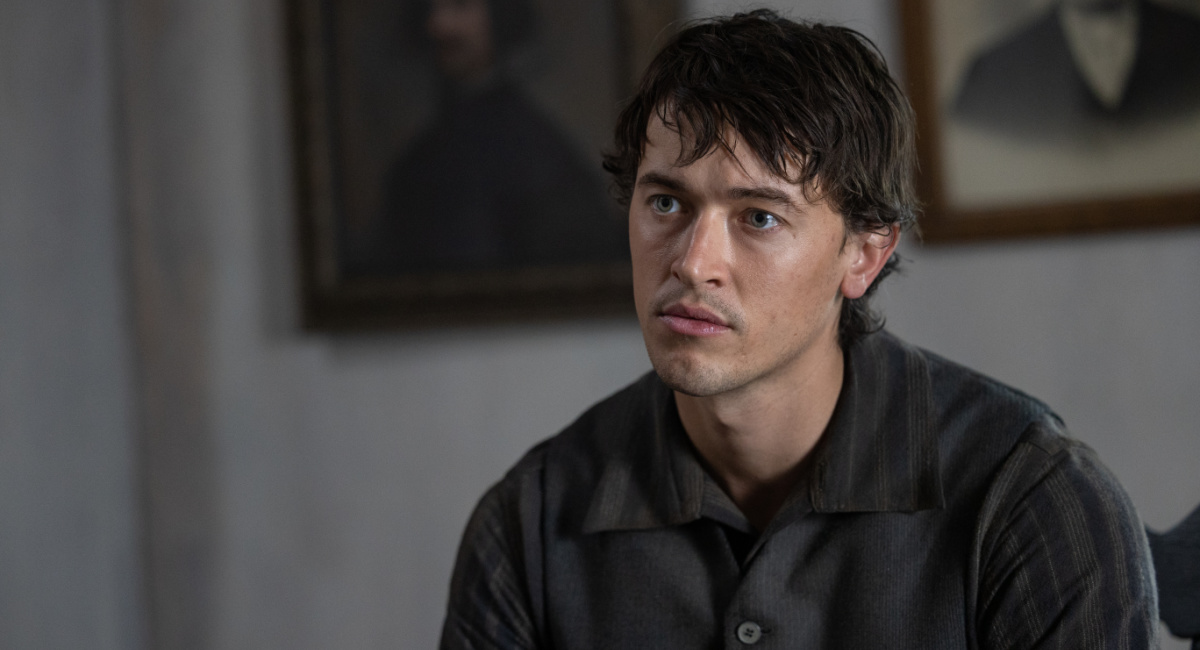
Tom Blyth in 'Billy the Kid' season 2. Photo: Metro-Goldwyn-Mayer Studios Inc.
MF: Can you talk about working with Tom Blyth and his charming yet vulnerable performance as Billy?
MH: It's been magical. It's been wonderful. This is his first big role, and he's only, I think, a year out of college. He was one of the first people to throw his hat into the ring. But I think we saw 400 people for the role. Obviously initially, we thought it's got to be an American. The very first thing, of course, was he sent us a picture of himself or his agent did, and he looked like Billy. That was really weird. It's like, "Whoa, wait a minute. This is too good to be true." So we were going through all these young actors, and of course, many of them were very good, but they didn't quite have what he had, which you sort of mentioned in a way. It's a kind of steeliness and a sensitivity that you can tell is going on at the same time. His eyes are steely, but you know he's sensitive, and I wanted that desperately. As I say, the last thing I wanted was a pathological killer. I wanted someone who was very human, but was capable of doing the things that he actually did. But it went on for quite a while, this process. I was throwing rocks in a way, because this guy, we didn't know much about him at all. So I would say things like, "You know that Billy was actually famous for singing. He had a beautiful voice, and could play the guitar. He sang and he danced. Who knew?" So the next thing I know, Tom sends me a tape in which he's playing his guitar and singing beautifully. I said, "All right." We did go for him, and that was one of the best, obviously, decisions we've made in the whole thing, because it's about him, and he has to carry it. Certainly, in the first season, he was just about in every scene. I mean, that's quite something.
Related Article: First Look at Rachel Zegler and Tom Blyth in the ‘Hunger Games’ Prequel
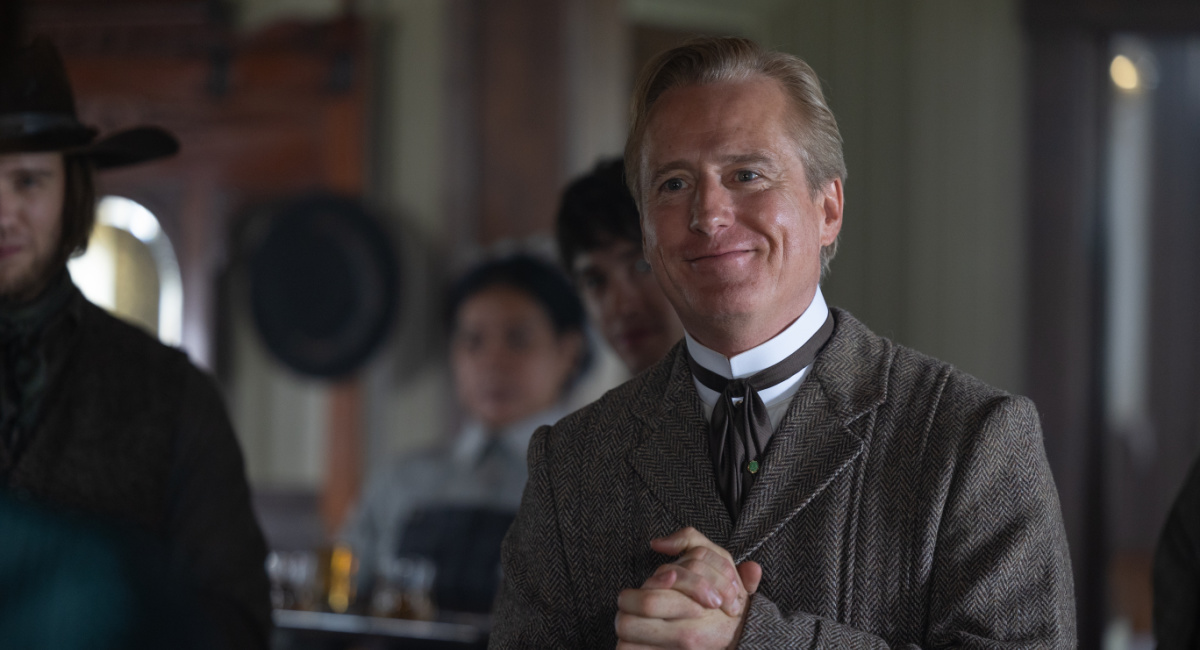
Linus Roache in 'Billy the Kid' season 2. Photo: Metro-Goldwyn-Mayer Studios Inc.
MF: Can you talk about casting Linus Roache as Tunstall and the father/son relationship he creates with Billy?
MH: That was a big decision at the end of season one, mainly because I knew that meeting Tunstall was going to be a monumental thing for Billy. It was going to change Billy's life forever. So the relationship between Billy and Tunstall had to be very deep and significant, and we didn't have long to build it up. We liked the guy who played Tunstall in season one, but he was too young to be the surrogate father. You wouldn't believe it. And Linus and I actually are great friends. He was in ‘Vikings.’ He played a big role in ‘Vikings.’ We're great friends, and we talk all the time. I wanted him on the show desperately. I wanted him for many roles in the show, but actually Tunstall fitted him like a glove. It was mainly the fact that he could talk to Billy sensitively, and he could talk about his own family, his father and all the things that concerned Billy, and his sisters and all that. That Billy, whose father just walked out of his life and died because he couldn't cope with America, had really missed having a father. He saw his mother working herself to death because there was no father. So he did become Billy's surrogate father. I knew Linus could bring that off. I knew that in the few scenes he had with Billy, they could establish a huge and deep rapport because Linus is a great and understated actor. He was a Shakespearian actor initially. He was so extraordinarily brilliant in ‘Vikings’ that I've felt myself very lucky that he came back and was in ‘Billy.’
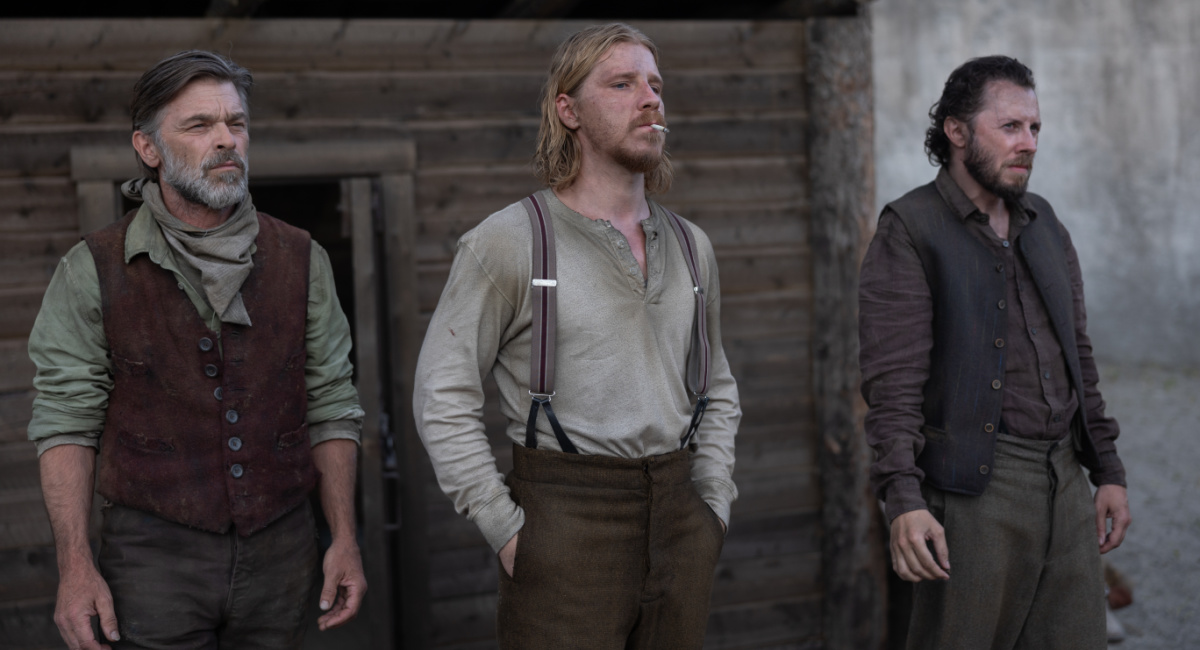
(Center) Daniel Webber in 'Billy the Kid' season 2. Photo: Metro-Goldwyn-Mayer Studios Inc.
MF: Finally, there have been countless movies and TV programs over the years based on the legend of Billy the Kid. Why do you think we as a public are so interested in this outlaw’s story?
MH: Yeah, I've thought about this. It may be because he's not Jesse James. He's a much younger guy, and he doesn't rob banks. He's not actually a conventional outlaw at all. As I say, he doesn't want to be an outlaw. He wants to go straight. I mean, all the other famous outlaws chose to be outlaws, like Jesse Evans does in the show. He's a born outlaw. He doesn't ever want to go straight. Billy desperately wants to go straight. Everyone who knew him absolutely loved him. So I've been reading a book by someone who rode with him and repeats some of the things that Billy said. When you hear the voice in your head, you could say, "I like that guy. That guy's really interesting and nice." I think there are lots of reasons. That there is something incredibly attractive about a very young guy who can do phenomenal things. Let's just take it as a Western. He could ride unlike anyone else. He could shoot unlike anyone else. He was as brave as anything. I don't think he knew fear. There was no jail that could hold him. All those things are true about him, and they make a good myth. But what's also true about him is, I think, he was very human and a nice guy, and I would've liked to meet him.
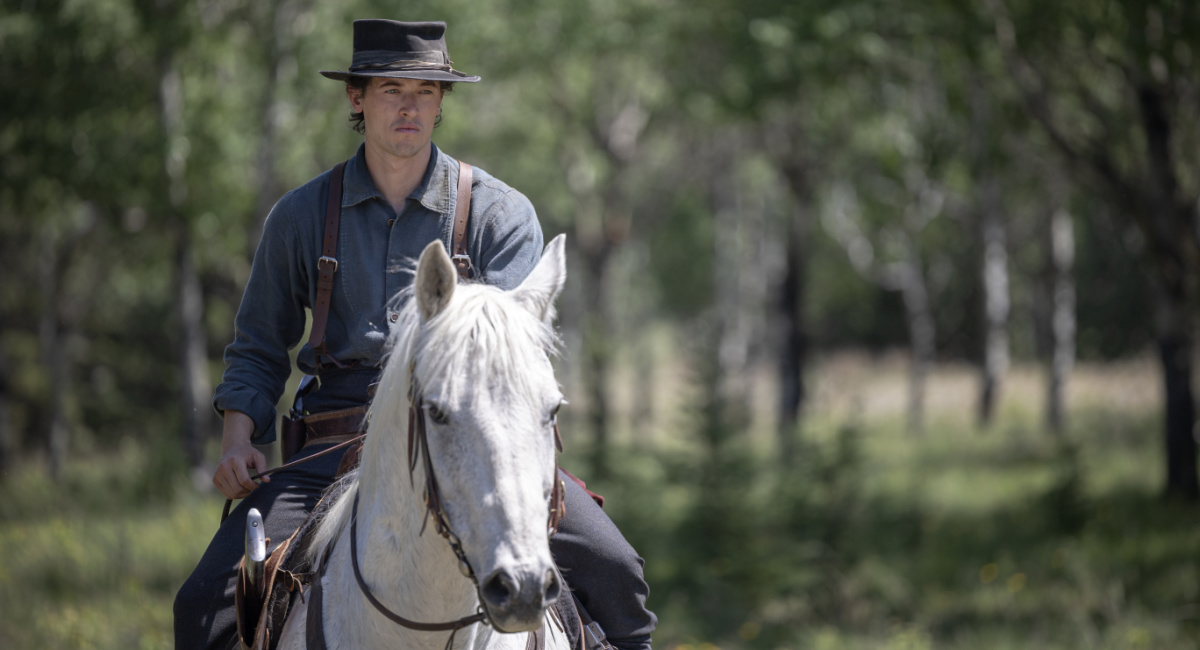
Tom Blyth in 'Billy the Kid' season 2. Photo: Metro-Goldwyn-Mayer Studios Inc.
Other Movies Similar to ‘Billy the Kid:’
- 'Butch Cassidy and the Sundance Kid' (1969)
- 'Silverado' (1985)
- 'Young Guns' (1988)
- 'Bill & Ted's Excellent Adventure' (1989)
- 'Young Guns II' (1990)
- 'Unforgiven' (1992)
- 'Tombstone' (1993)
- 'True Grit' (2010)
- 'The Magnificent Seven' (2016)
Buy Tom Blyth Movies On Amazon












